Much as people do, plants like to share their space with other plants that help them thrive. As gardeners, we reap the benefits of companion planting when we choose plants that help to ward off pests, improve the soil, or have other benefits to our overall landscaping.
In addition to boosting your existing plants’ health, a companion plant should require similar growing conditions. After all, it would be difficult, if not impossible, to provide closely planted varieties with very different soil or humidity conditions. And in most cases, we choose companion plants that look nice when placed together.
If you’re looking for companion plants for your rose bushes, aesthetics are probably very important. After all, we plant roses to enjoy their beautiful blooms. When selecting companion plants for your roses, consider the following characteristics:
Form. When you think of form, remember that there can be too much of a good thing. Balance the wide, round shape of roses with flowers that are formed in tall spires.
Color. The color of your companion plants should complement the color of your roses. Try not to add more of the same color; for example, if your roses are red, choose companion blooms that are yellow or deep purple. Consider foliage, too. If your rose bushes have deep green, waxy leaves, choose companion foliage in a light green, silver, or purple hue.
Bloom time. Roses tend to bloom in spring, early summer and fall, so you may wish to fill in the gap by choosing plants that bloom in the heat of the summer or the cold of the winter. That way, there is always something blooming in your garden.
Roses grow best in full sun and well-drained soil. Choose companion plants that require the same growing conditions. But remember not to choose those that tend to grow aggressively, or they could quickly crowd your more sensitive rose bushes.
If you hope to ward off pests without using harmful pesticides, organic gardening experts generally recommend certain companion plants. Members of the onion family, such as chives, edible onions, and ornamental allium repel aphids and prevent black spot (a disease which can damage your roses). Four o’clocks and larkspur attract Japanese beetles to eat their poisonous leaves, and yarrow attracts helpful ladybugs that feed on aphids. If you have a rabbit problem in your rose garden, try planting lavender or shorter sages to repel them.
When planting companions for your roses, remember to plant them at least one foot away. This gives keeps the roots of your rose bushes undisturbed, and gives them room to thrive.
For more help designing your dream rose garden, call and schedule an appointment with one of our designers. We will be happy to help you select plants that suit your individual needs.

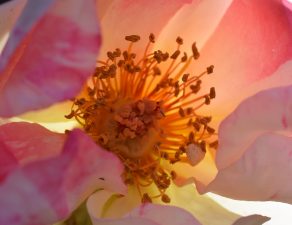

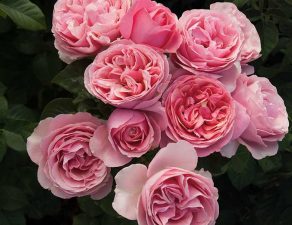
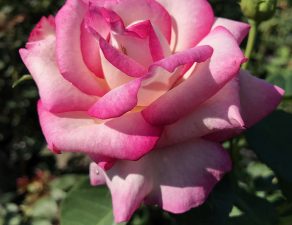
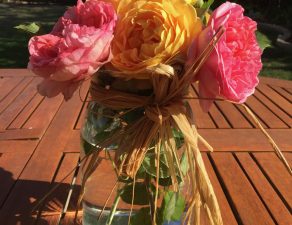
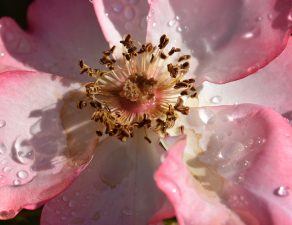
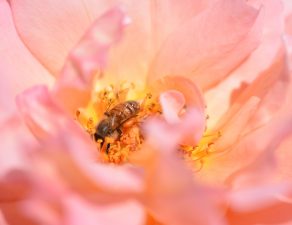
Write a comment: